Jason Micheli's Blog, page 68
August 10, 2023
What Story?

Tamed Cynic is a reader-supported publication. To receive new posts and all content, consider becoming a paid subscriber.
My new book, A Quid without any Quo, came out this week. Get a copy and, while you’re at it, leave a review.
Here's an excerpt from the book:
The Sin-Eater
I n his depiction of Christ in the garden of Gethsemane, during the witching hours of Good Friday, the nineteenth-century French painter Eugene Delacroix depicted Jesus not kneeling serenely with folded hands and backlit by soft, celestial light. He instead painted Jesus praying sprawled flat in the dirt, almost writhing, like a terrible ailment had overtaken him, stretching out his arms, anguish in his eyes, his hands open in a desperate gesture of pleading. Delacroix rendered the Father’s incarnate Son twisted into a golem of doubt and despair—as though he had been transfigured from God’s own righteousness into a totem of God’s rejection. Delacroix shows what Paul says. St. Matthew, in his Gospel account of Gethsemane reports that the same Jesus who had boldly predicted his betrayal and crucifixion in the garden confides to his disciples that he is “deeply grieved and agitated.” Or, as the original Greek inelegantly lays it out there, Jesus tells them he’s “depressed and confused.” “Remain here with me and stay awake, for I am so
depressed I could die,” Jesus says in the literal Greek (Matt 26:36–46).
And then, according to Matthew, Jesus can manage only a few more steps before he throws himself down on the ground, and the word Matthew uses, ekthembeistai, means “to shudder in horror, stricken and helpless.” In Gethsemane, Jesus is, in every literal sense of the Greek language, scared out of his mind. Or, as the book of Hebrews describes Jesus on the eve of the passion, Jesus is “crying out frantically with great tears” (Heb 5:7). Matthew shows you what Paul says to you today.
Karl Barth says Jesus’ prayer in the garden of Gethsemane doesn’t even count as prayer because it’s not a dialogue between the Son and the Father. It’s entirely a one-way conversation, because it’s not just that the Father doesn’t speak or answer back; it’s that the Son only gets an empty dial tone. God’s entirely absent from Jesus, as dark and silent to him as the whale’s belly was to Jonah. Barth shows what Paul says.
Martin Luther says when Jesus gets up off the ground in Gethsemane there’s nothing left of Jesus. There’s nothing left of his own humanity. He’s an empty vessel—so that, when Jesus drinks the cup the Father will not remove from him, when he drinks the cup of wrath, he is filled completely with us, with our sinfulness. At the well, the woman ran away saying, “Jesus told me everything I’d ever done.”1 In the garden, Jesus walks away, filled and running over with everything we’ve ever done. Luther shows you what Paul says.
I spent the summer before I started seminary waiting tables in the dining room at this posh, upscale retirement condominium in Charlottesville. Because I was the same waiter for the same folks seven nights a week, week after week, I befriended some of them, especially a couple named Julian and Elinor Hartt. At our wedding, they gave Ali and me a French saucepan in the shape of a heart (which, I later returned for a normal-shaped pot— and still feel guilty about it). Elinor was a famous artist, and Julian was a retired theologian. He’d grown up a preacher’s kid in South Dakota, and all through childhood his best friend was a kid who would become Vice President: Hubert Humphrey. Julian had taught philosophy at Yale for a number of years and then, towards the end of his career, he was recruited by the University of Virginia to head their new department of religious stud- ies. When Julian and Elinor found out that their charming, good-looking waiter was not only a graduate of that same religion department but bound for seminary, they were determined to make fast friends with me. On many weekend afternoons or evenings at the end of my shift, he invited me up to their apartment for conversation and sherry, always sherry, which, up to that point in my life, I had only cooked with.
“I would’ve thought a Methodist of your advanced age would be a tee- totaler,” I said, when he offered me a glass for the first time.
“My father was, but I’m free in Christ,” he answered in a prairie accent, and then laughed and tapped his cane on the floor.
We talked about UVA and the Methodist Church and William Faulkner. We talked about upbringings and the connections we both had to the Plains States. We talked about the students he had taught who soon would be my teachers. We talked about his wife and the woman I planned to make mine. We sat on his patio one afternoon, watching the humming- birds, when I told him how I planned to propose to Ali.
“You sound more troubled by it than enthusiastic,” he said, “Usually it takes a few years of marriage before you sound that way about marriage.”
And then he laughed, tapped his cane on the cement, and poured himself another draw of sherry.
“No, it’s not that I’m not excited,” I said. “It’s something else I’ve been struggling with.”
“You sound like a man who needs more sherry,” he said, pulling out the cork and pouring.
He stared at the hummingbirds, silent in the sun and stubbornly sip- ping his sherry, waiting for me to unload my burden. So I confessed to him how I had not yet proposed but I had already decided not to invite my father to the wedding. And then I shared with him the why—why I did not want to invite him, the alcoholism and infidelities, the abandonment, and all the broken promises.
“It sounds like you’ve set your mind on it,” Dr. Hartt said when I fin- ished. “So what troubles you?”
“I might have my reasons,” I said, “and they might be very good reasons—I think they are—but that doesn’t change the fact that I’m sup- posed to honor my father and mother, aren’t I? As much as I think it’s a good decision, I can’t shake feeling guilty about all the anger and un- forgiveness I still carry around with me like sacks of groceries in damp, rain-soaked paper bags.”
He took a few sips of his sherry and nodded, and then, without look- ing at me, he told me a story.
“My father,” he said, “as you know, was a prairie pastor. Well, he had a friend, a colleague I suppose you could say, a Norwegian Lutheran pas- tor named Johan Aasgaard. He eventually went on to become president of Luther Seminary in Minnesota. Anyways, one time, at some conference or another, Dr. Aasgaard told my father about a woman who was in his congregation.”
Dr. Hartt looked up at the clouds, thinking, trying to recall.
“You know, I’m not sure now what provoked him to tell my father this story, but I know my father, who was sort of a fundamentalist, loved to argue with nonpietists about the limits of grace.”
And Dr. Hartt paused his story to laugh at the memory of his father and take a sip from his short, little glass.
“Dr. Aasgaard had performed this woman’s wedding just a few months earlier. She came to see Dr. Aasgaard one afternoon not long after the wed- ding. ‘Dr. Aasgaard, I have to talk with you,’ she said, shaking and trem- bling and crying, ‘I must talk to you now.’ So he knew she’d come to confess something to him. And he said to her, ‘There’s a liturgy in the hymnal for someone in your situation.’ He opened the book up to Luther’s service of confession and absolution from the Small Catechism, and he invited her to kneel there in his office just as he knelt in front of her.
“They began working their way through the ritual, and she confessed to her preacher. She told him that before she had been married or even met her husband, she’d had a relationship with a doctor. She’d become pregnant by the doctor, and the doctor, who wanted nothing to do with a child, pres- sured her and pressured her and pressured her into having an abortion.”
Dr. Hartt stopped and looked at me to make sure I understood.
“Bear in mind, this was in the 1920s. She relented under his pressure and the doctor arranged for a colleague to do it and she had the abortion.
“‘That was the end of the relationship with the doctor,’ she confessed to Dr. Aasgaard, crying.”
And Dr. Hartt continued the story: “When her husband started court- ing her, she felt like she should tell him what she had done, but she couldn’t bring herself to tell him. And when the relationship became serious, she felt like she should tell him what she had done, but she couldn’t bring herself to tell him. And when he proposed to her, she felt like she should tell him what she had done, but still she couldn’t tell him. And when they got married, every day she felt like she should tell him what she had done, but she could never bear to do it.
“‘Now,’ she said to her preacher, ‘every time he touches me all I can think about is what I’ve done and how I’ve betrayed him. And whenever he talks to me, all I can think about is what I’m keeping myself from tell- ing him.’
“When she finished confessing her story,” Dr. Hartt told me, “this pas- tor stood up and placed his hand on her forehead and said to her, ‘In the name of Jesus Christ and by his authority alone, I declare unto you the entire forgiveness of all your sins.’
“‘She wept for a long while,’ he told my father,” Dr. Hartt said, “and then she stood up, wiped her eyes dry, and straightened herself up and said, ‘Well now, I guess I better go home now and tell my husband this story.’
“And Dr. Aasgaard looked her straight in the eyes and said, ‘What story?’”
Dr. Hartt told me that story years before I’d read Paul’s announce- ment that “Christ set us free from the curse of the law by becoming a curse for us.”
Martin Luther says that Jesus the Curse is our most tender comfort. In his Commentary on Galatians, Luther paints a picture of it. He shows what Paul says:
Our most merciful Father, seeing that we were oppressed by the curse of the law and held under its power so that we could never have freed ourselves in our own strength, sent his only Son into the world. And the Father said to him, “Become that Peter, the denier. Become that Paul, the persecutor, blasphemer, and cruel executioner. Become that David, adulterer and murderer. Become that sinner, Adam, who ate the fruit in the garden. Become the thieves, who hung from the cross. For a moment, Son, become the person who has committed the sins of every human being. Be sure you pay and satisfy the penalty of them all.” Then the law appears and says to Jesus, “I find that you are a guilty sinner and such a great sinner that you have taken on your body the sins of every creature. Thus, I see no sins on anyone but you. Thus, you must die on the tree!” Then the law lunges against Christ and kills him. But in such a way, the entire world is purified and cleansed of all sin. Now, since sin is abolished by this one man, God only sees throughout the whole world, but especially in those who be- lieve, not only cleansing but righteousness. And if there remains some residue of sin, due to Christ’s glory that outshines the sun, God is unable to see it.
“I guess I better go home now and tell my husband this story.’” “What story?”
“What story?!” Dr. Hartt repeated it, laughing—reveling really—and tapped his cane as applause. I must’ve looked confused because Dr. Hartt turned to me and suddenly became a teacher again. “Once you’ve given the story over to Christ, Jason, there is no story any longer. This is what Christ Jesus does. He takes our narrative up into his narrative. And when we entrust our narrative to him—the abortion, the infidelity, the unbe- lief, the selfishness and resentment, the prejudice, the words spoken in anger—he absorbs our narrative into his narrative so that he can hand it back to us and say, ‘Your sins are forgiven.’
“And pay attention, Jason, in case they don’t teach you this in semi- nary: it’s the calling of preachers, lay and ordained alike, to preside at that wonderful exchange.
“What story!?” Dr. Hartt laughed again and raised a glass to a de- lightful scoundrel in the sky. “That woman went home rejoicing, my father said, and had a long and happy life, because she was no longer carrying her burden around with her—because Christ Jesus was carrying it. If all the sins of the whole world are found in Jesus Christ, Jason, then they are no longer found in the world. If Christ is guilty of all the sins of the world, then we are all totally and entirely free from all our sins.”
And then he took a sip of sherry and hummed a few notes of a song that was impossible not to recognize.
It was “Joy to World.”
“As far as the curse is found.”
I nodded and thought over everything he’d said.
“Did you share that story to tell me I’m forgiven for not honoring my
father? Forgiven for my sin?”
“Oh no,” Dr. Hartt laughed. “I mean, you are, of course, but my father’s
friend told that story to him, and my father told that story to me, and now I’ve told this story to my friend, in order to remind him that his Father has forgiven all of his sins.”
I must’ve blanched.
“You look like a man who needs a drink,” Dr. Hartt said, pouring me another sherry.
“Maybe several more,” I mumbled.
“That’s fine. That’s fine,” Dr. Hartt chuckled. “God’s party doesn’t really get going until the sinners show up—isn’t that right!?”
Hear the good news.
Whatever your story:
The hurt you can’t let go of.
The gossip and backbiting and double-talk.
The forgiveness you withheld until it was too late.
The doubts that linger.
The disappointments you still resent.
The relationship you let fester.
The lies you tell to shroud your addiction.
The truth you’re too cowardly to come out with.
The handout you withheld.
The frustration that others aren’t as faithful as you.
The gift you gave with strings attached.
The if-bombs you throw down as conditions of your love.
The prodigal you won’t welcome home.
The prejudice.
The self-righteousness and sanctimony that feels good for a second—
especially when it’s about politics—but then it sticks on you like a bad smell on your shoe.
The secret you keep hidden in the dark corner closet of your heart. Whatever your story—what story?
Christ Jesus has set you free from that story by becoming that story for you.
 Read Tamed Cynic in the Substack appAvailable for iOS and AndroidGet the app
Read Tamed Cynic in the Substack appAvailable for iOS and AndroidGet the app
August 9, 2023
Seeing Voices

Tamed Cynic is a reader-supported publication. To receive new posts and all content, consider becoming a paid subscriber.
“The loneliest place in the world is around the ash tray in the common room at the psych ward,” a colleague told me, “I thought I was going to hell and I ended up in the loony bin.”
It was not the first time his body— his mind— had betrayed him.
He could remember only the two techs in the back of an ambulance, college students, debating about whether it was Hemingway or Fitzgerald who had killed himself. He thought it an odd argument to press given that he was in their care for the very same reason. Even if he took his life something to be forsaken, those who loved him would not let him go. He had been 5150’d to a psychiatric hospital where he awoke strapped down a bed. His hands were bound to his sides so that his hands would not, could not obey his treacherous mind.
In due course he was freed from the bed and its bindings but still not allowed laces for his shoes or anything for his hands but crayons.
“How is the gospel that we proclaim,” he asked himself, “good news in a place like this? For people like me?”
At first it was only a question for himself and the theology PhD on his CV.
Then it became a question for others like myself.
“How is the gospel good news for people like me and in places like the loony bin?”
I had a parishioner who developed a split personality to cope with the mental trauma she suffered after she accidentally killed a pedestrian with her car.
It wasn’t even her fault.
But to convince her she shouldn’t be so hard on herself would’ve required converting the complete alternate personality the injury conjured in her.
How is the gospel for her?
I have a friend whose son somehow— the word miracle goes down like a tough pill— survived a horrific hit-and-run. She celebrated his unexpected recovery as sheer grace; the same recovery process festered his Tourette’s into schizophrenia. Healthy, he ran away, utterly convinced by delusions that the parents who loved him had once horridly abused him.
How is the gospel for any of them?
Or the boy with autism whose mind will not allow him to escape the trauma his birth family visited upon him— how is the gospel good news for him or those who love him (or simply give a shit about him)?
August 8, 2023
Jesus Displays the Grain of the Universe
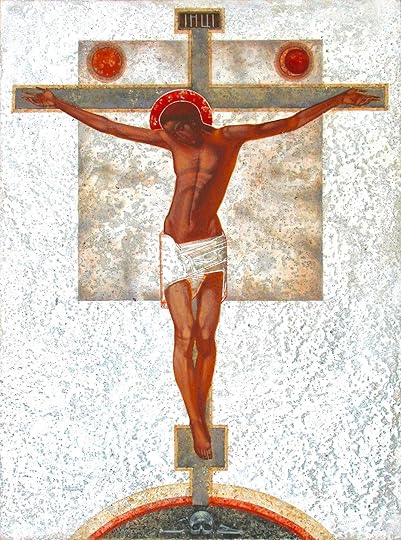
Tamed Cynic is a reader-supported publication. To receive new posts and all content, consider becoming a paid subscriber.
Don’t forget!
Order your copy of my new book, A Quid without Any Quo. New Testament scholar, Beverly Gaventa, says it is “witty and wise.”
Romans 10.1-10
To those formed by the reductionisms offered by many churches in America, the tenth chapter of Paul’s Letter to the Romans, Sunday’s lectionary epistle, can sound like the apostle is attempting a more eloquent version of the Sinner’s Prayer. Just as many Christians believe that Christianity is about a personal relationship with God and faith a private matter of the heart, Romans 10 can sound as if Paul saying that faith is what we believe (personally and privately) in our hearts.
Paul doesn’t mean anything of the sort, but so to see requires you to know Paul’s context.
When Paul wrote Romans, around the year 55, Christianity was a small, odd community amidst an empire antithetical to it. Christians were a nation within a nation. Christianity represented an alternative fealty to country and culture and even family. Baptism then was not a religious seal on a life you would’ve lived anyway. It was a radical coming out. It was an act of repentance in the most original meaning of that word: it was a reorientation of everything that had come before.
To profess that “Jesus is Lord” was to simultaneously protest that “Caesar is not Lord.” Or, Caesar is lord no longer.August 7, 2023
Revelation Class Postponed
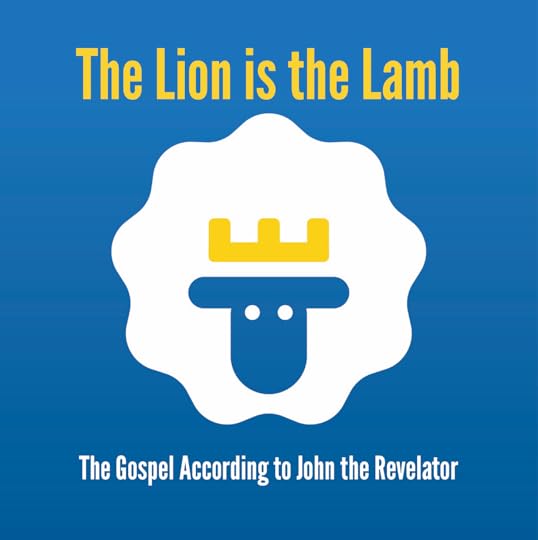
Hi Folks,
I apologize for jamming up your inbox twice in one day, but this is the easiest catch-all communication.
I planned to begin a Monday night series on the Book of Revelation tonight; however, the forecast projects stormpocalypse to be over the DC area precisely when I was to begin. For the folks in my area, there’s a good chance we’ll lose power (or my dogs will be going crazy).
We’ll postpone and begin next Monday.In the meantime, here is the outline of the coming sessions so that you can read ahead.
The Lion is the Lamb — The Gospel According to John the Revelator
Seeing Voices — Chapter 1
Jesus’s Body — Chapters 2-3
The Making and Remaking of the World — Chapters 4-7
The Wrath of the Lamb — Chapters 8-11
The Eternal Gospel — Chapters 12-14
The Cup of God’s Wrath — Chapters 15-18
The Marriage Supper of the Lamb — Chapters 19-22
Postponement means there is still to sign up for the class!
Peace,
Jason
Christ Calls Proclaimers Not Explainers
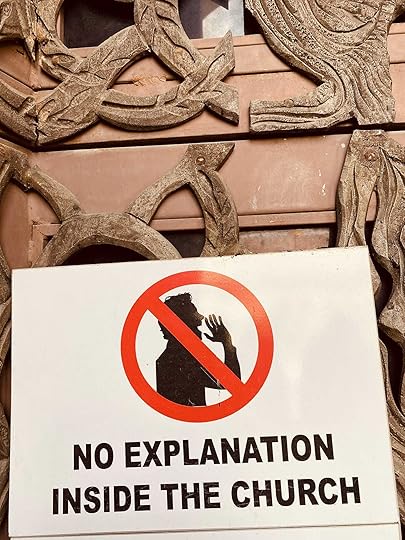
Tamed Cynic is a reader-supported publication. To receive new posts and all content, consider becoming a paid subscriber.
For a series of lectures I gave last fall for the Anglican Church of Canada on these themes, click here.
The lectionary epistle passage for this Sunday is Romans 10.5-10, in which the apostle Paul makes the frighteningly offensive claim that the Maker of Heaven and Earth has forever outsourced the work salvation to ordinary sinners who speak gospel into the earballs of other sinners:
If you confess with your lips that Jesus is Lord and believe in your heart that God raised him from the dead, you will be saved. For one believes with the heart and so is justified, and one confesses with the mouth and so is saved…For, "Everyone who calls on the name of the Lord shall be saved."
But how are they to call on one in whom they have not believed? And how are they to believe in one of whom they have never heard? And how are they to hear without someone to proclaim him?"
Why do preachers then put so little stock in proclamation?
Is it because we cannot stomach the notion that God not only makes a history with us but makes its End somehow contingent upon those creatures called preachers?
It’s no wonder we opt instead for safer homiletical territory, hortatory and advice and lettuce (“Let us…”) sermons; i.e., the law.
What else, other than the sheer stakes it impinges upon us, can account for what frequently feels like a conspiracy of silence in the church when it comes to the aural nature of God’s salvation?
But the safer homiletical territory isn’t.
To muddle the gospel with the law, mixing it into a kind of glawspel— which is the most popular message in the Mainline Church in America, is to turn the free medicine into an expensive, slow-acting poison. The apostle Paul point blank calls it “a ministry of death,” yet we find it so tempting.

As Gerhard Forde writes:
“We need to take stock of the fact that while radical Paulinism is in itself open to both the church and the world (because it announces a Christ who is the end of the Law, the end of all particularities and hegemonies), it is, no doubt for this very reason, always homeless in this age, always suspect, always under attack, always pressured to compromise and sell its birthright for a mess of worldly pottage.”
Karl Barth notes that sola fide is really but another way of saying solus Christus, which leaves nothing else of you. In a culture of elder brothers and early risers and on time clock punchers at the vineyard, it is hard work to do this hard, healing word. To bear witness to this hard word is not easy nor without risk for it goes against everything the Old Adam considers best and good.
 We are justified in Christ alone through faith alone by grace alone apart from works of the Law. But sinners can only know this life-altering news by virtue of believers’s work. The only labor necessary to the gospel of grace is yours— your gospeling another sinner.
We are justified in Christ alone through faith alone by grace alone apart from works of the Law. But sinners can only know this life-altering news by virtue of believers’s work. The only labor necessary to the gospel of grace is yours— your gospeling another sinner.By virtue of baptism, all believers are preachers. And preachers, scripture says, are essential workers. Justification is grasped through faith and faith, scripture insists, comes by hearing. Which is to say, faith comes by means of a preacher. Put another way, the Father’s heart wants the Son and all who belong him. We become Christ’s own through faith, and faith comes by hearing the promise.
God chooses God’s own through proclamation.
You are the only ones who can lead people to freedom through the proclamation of the promise that Jesus lives with death behind him. The only solution for God’s absolute judgment is absolution; proclamation is the prescription that gives the medicine because the gospel is a word in which Christ gives us himself.
Preaching is how God elects the ungodly. Preaching is how God applies predestination to a sinner.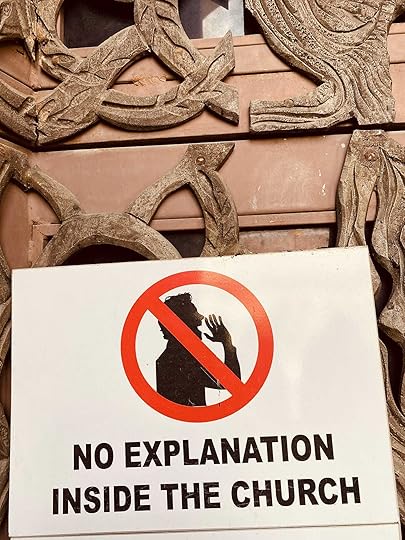
Election names neither a past decision by God nor an act of God outside of time. It is present tense. It is event. It is apocalyptic. It happens now, in you and through you:
“This is my body broken for you…”
“This is my blood shed for you…”
“In the name of Jesus Christ, your sins are forgiven.”
Election happens in history; otherwise, word and table are superfluous. Pulpit and altar are not places. They are doings. The gospel is a word that gives Christ; therefore, preaching is not simply any word about God. Preaching is a particular word from God.
Christ calls proclaimers not explainers.Explanations do not cure what ails us. The idea that God is loving or forgiving in general is no medicine at all. It does no one any good to hear that “God so loved the world he gave his only begotten Son.” Rather, the sin-sick patient needs to hear it first person, in the present tense, “God so loves you he gave his only Son…in the name of Jesus Christ and by his authority I declare to you now, son, your sins are forgiven, get up and walk, unbound and free.”
The gospel is not a word about salvation.
The gospel is a word that does salvation.
It is a word in which God does God to the patient. The only remedy for our sickness unto death is to forgive it, to actually absolve it, to take the risk of doing it.
Without this doing, preaching has failed.
“Give them Christ,” John Wesley told the preachers he peeled off the Anglican Church.
Paul makes it clear in the lectionary passage for Sunday:
God did not send a book. God sent preachers.This is not how I would have arranged matters; nonetheless, it is the way God has chosen to choose.
We live in a time when it seems Pelagius is all but canonized above every member of the communion of the saints. We all want to change the world and flatter ourselves that we are up for the challenge, yet it is the hard work of faith to believe that in proclamation God is changing things in the most radical way imaginable, by killing and making alive: “Behold, if anyone is in Christ, a new creation!”
Ministry is more than a helping profession.
Proclaimers are the Lord’s hitmen and midwives.
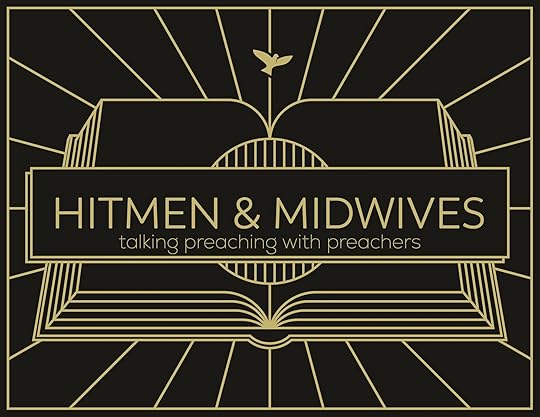
Yours is the only effort necessary for sinners to be healed by grace. You are the Lord’s essential workers.
Given the importance of your task, perhaps you need to rest in the same promise with which you toil. So hear the good news: “You have died, and your life is hid now with Christ in God.” Everything about your labor begins after the life-altering fact that you have already died the only death that matters and, no matter how bleak the future appears, the odds are ever in your favor. Ministry is a post-humous vocation. And the one who called you and the one word killed you and the one who made you Easter new is in charge. You, preachers, are not called to carry the burden of the world on your back. You don’t even have to carry sinners on a stretcher to Jesus. You only have to bring Christ to those who are sick and paralyzed in ways they do not even perceive.
You only have to bring Christ to his patients.
And though Christ was once fat and heavy, laid down with all our sins, he is not a burden to bear at all. He is as light as a feather. He weighs no more than a word, “Son, your sins are forgiven.”
August 6, 2023
The Carpenter's Son is a Tailor
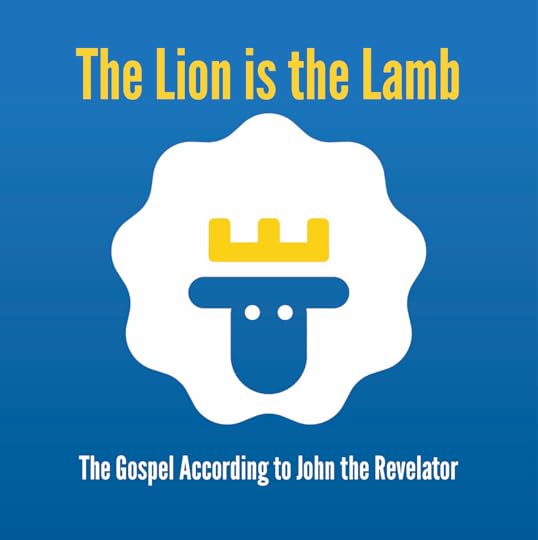
Tamed Cynic is a reader-supported publication. To receive new posts and all content, consider becoming a paid subscriber.
Revelation 7.9-17
Neil was a high school baseball player whose life ended in the early innings, leaving his family and friends like hometown fans wondering how the late innings might have gone if the storm had not come.
Shortly after he graduated high school, Neil taught eleven year old boys basketball such was his joy for the game and passion to pass it on to others. And such was his father’s love of Neil that Mike would sit in the uncomfortable bleachers and watch eleven year old boys play ball— not because he had any grandsons in the game but because the father wanted to watch his son mentoring other fathers’s sons. “From up in the basketball bleachers,” Mike told me in planning his son’s funeral, “that was the perfect spot to see Neil at his best and his most alive. The bleachers were the best spot to see Neil’s passion and joy and kindness and patience and potential.”
Life off the court came harder for Neil.
The camaraderie he found on sports teams was missing in meetings. One winter night he drove drunk to an AA meeting and hit a tree a block from his house. The cliche about drunk drivers always walking away from the scene of an accident is a lie. His parents heard the crash before the police contacted them.
His parents were not parishioners. They were not even believers. They told me so when I went to their house to discuss their son’s burial. “We’re not spiritual or religious,” Mike told me when he invited me into the foyer of their split-level, “We’ve just driven past your church for years and…” his voice trailed off and he started to cry.
“We’re not religious at all. I don’t even believe in God or Jesus or the Bible or…”
And again his voice trailed off. He did not have the stomach to say heaven.
I don’t believe in heaven or its eternity.
“We had no idea who to call so we called you.”
Mostly, they just told me about their son. They had no interest in the particulars of the funeral service, no opinions about prayers or scriptures or hymns. They were neither spiritual nor religious, Mike told me again when I asked about the liturgy. So he surprised me when, at the end of our ninety minutes together, after I stood up and closed my notebook and pulled my car keys from my pocket, he held out his finger— like he was adding a starter to his menu order— and he said, “You’re going to wear a robe, right? And a….”
He mimed the stole I wear around my neck.
“We want you to wear a robe and, you know, the getup.”
I nodded.
“Since you’re not believers, can I ask why you care what clothes I wear?”
And Neil’s Dad said to me:
“You strike me as a smart, truthful guy, but if you’re going to stand up there in church and make a promise about my boy’s future I need it— we both need it— to be more than your personal opinion. I have never believed such promises, but now I want to believe them and so we need you to look like you are not just making it up as you go along. We need you dressed as though the promise is true. We need you to dress so that we can see a whole history behind you of people who believed this too.”
We need you dressed as though the promise is true. We need you to dress so that we can see a whole history behind you of people who believed this too.”
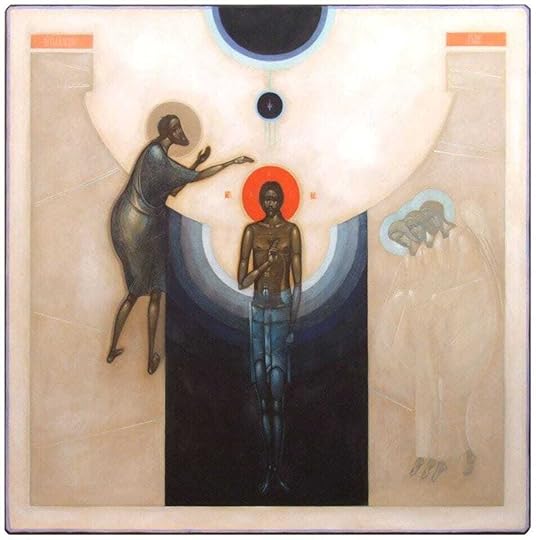
Years ago I saw an article online about an event in Miami called the Christian Fashion Week Expo. Initially, it struck me as so ridiculous that I wrote a deadpan sarcastic blog post poking fun at the idea of Christian fashion. I included photographs of my legs in my super short Magnum P.I. shorts. The producers of the Christian Fashion Week Expo somehow stumbled across my blog post and thought it was so funny that they mailed me tickets and press credentials for the event.
“You are what you wear,” someone had written on the back of the press pass along with a smiley face in bold black ink.Just this week I was running on the treadmill at the Rec Center. I wore a red banana as a headband, a shirt so old you could read the Washington Post through it, and gray and black shorts even shorter than my Magnum shorts. I was on my third mile when an old guy stepped onto the treadmill next to me and turned to face me. A red headband held back his curly white hair, and he too was wearing shorts barely long enough to cover the parts of him required by law. He tapped me on my shoulder. I slowed my pace and I took my out earbuds so I could hear whatever he wanted to say to me. He pointed at himself and then me and smiled at our likeness.
Then he gave me a thumbs up and shouted, “The clothes make the man”.He was not wrong.I came of age in the ’90’s when, inspired by Nirvana and other grunge bands, we all donned the flannel and denim uniform to display collectively our individuality and our nonconformity.
George Carlin said that he only wore plain t-shirts because he did not want to be a walking billboard for the Man. “I’m the only one whose products and opinions I can accept,” Carlin joked.
In other words, you are what you wear.
Ironically, today on Etsy alone, you can buy dozens of different t-shirts bearing George Carlin’s likeness along with one of his trademark off-color jokes.
A former parishioner of mine invited me to pray when he transitioned from his role as a state prosecutor to a district judge. He told me later that his black robe acted upon him too. “It gives me confidence,” he said, “otherwise it’s an impossible, awesome task to sit in judgment upon another human being and decide their future. I don’t think a judge can be a judge without the judge’s clothing. It signifies that I render a judgment that is not my personal preference but what the law demands.”

Stanley Hauerwas jokes that a god who refrains from telling you what to do with your pots and pans, your clothing, and your genitals is not a god worthy of your worship. In chapter seven of the Apocalypse, scripture provides us another reminder of how unspiritual are both Judaism and Christianity. Even at the End with a capital E, the Bible takes pains to point out mundane, material matters like clothes.
“Who are these robed in white?” one of the elders asks John the Revelator.
The Seer replies to the elder, “Sir, you are the one that knows.”
And the elder replies to the prophet, “These are they who have come out of the great ordeal; they have washed their robes and made them white in the blood of the Lamb.”
In the Fulfillment, the saints wear robes.
Robes washed in the blood of the lamb.
Maybe this sartorial reference in the Book of Revelation is fitting given how the story God makes with us began in the Book of Genesis.In the beginning, you will recall, clothes were a problem. The Lord who spoke all into existence addresses the creatures Adam and Eve but thereafter they become afraid of their Creator. And afraid of God, they grow ashamed. We make garments out of leaves in order to hide our nakedness before God.
Before they exit Eden, the Creator turns to tailoring and the Lord makes Eve and Adam clothes from animal skins to protect them from elements. Thus, even on the occasion of the fall, clothes— the symbol of our original sin— become a sign of God’s benevolent, bespoke grace. No longer merely naked, Adam and Eve are clothed by God.
You are what you wear.
It’s so unspiritual.Again and again, the Bible elaborates on attire.The Book of Genesis ends like it began— in the closet, with the infamous coat that Israel gave to his son Joseph. Like in the garden, the garment had a double meaning. On the one hand, the coat of many colors signified Jacob’s singular love for his Joseph. On the other hand, Joseph’s prized and peculiar coat provoked his brothers’s sin.
Clothes not only make the man; clothes can make men commit terrible acts.
Over and again, scripture speaks of clothes.
The Bible speaks even of God having clothes.
Psalm 104 says, God has clothes. God is garmented in light. In Exodus 28, when Aaron is set aside to be the Lord’s first priest, Aaron is said to have holy clothes, giving him honor and holiness. The Lord’s instructions for Aaron’s garments goes on for forty verses.
The clothes make the man.
After all the twists and turns in his ministry, the prophet Isaiah declares in chapter sixty-one, “God has clothed me in a robe of holiness and a mantle of justice as a bride groom; God gave me the clothes I needed to do the job of proclaiming the truth to Israel.” Just so, scripture sees clothing— Isaiah’s clothing— as a sacrament of God’s grace; that is, a gift that makes you someone than you would otherwise be.
Neil’s father, Mike, had said to me, “I have never believed such promises, but now I want to believe them and so we need you to look like you are not just making it up as you go along. We need you dressed as though the promise is true. We need you to dress so that we can see a whole history behind you of people who believed this too.”
I was curious why two unbelievers cared so much about I wore to their son’s service of death and resurrection, but I would never have considered wearing simply my street clothes. The truth is that there are times, especially those occasions when I have to help parents bury their children, when I do not particularly feel like being a preacher or a priest.
When my faith feels as meager as a mustard seed, I need the clothes to make me more than I otherwise want to be.
You are what you wear.
It is so unspiritual, all this attention in the Bible to your pots and pans, your genitals, and your clothes.
Yet, according to the logic of scripture the sacramentality of clothing is such that to give some one your clothing is to give them your very self. In the Book of Samuel, Jonathan and David covenant with one another in deep friendship and, as an irrevocable sign of their bond, they do a peculiar thing.
They exchange their clothes.
Jonathan puts on what David was dressed in. David puts on the clothes Jonathan came wearing.Just so, each of them gives himself to the other.Similarly, the prophet Elijah does not give advice to the novice Elisha.
Elijah gives Elisha an item from his wardrobe. Elijah gives his mantle to the rookie prophet. Elijah bequeathes Elisha all of his authority by giving him his clothes.
Uncle Ben was only partially correct. It’s not only that “With great power comes great responsibility.”
In the strange new world of the Bible, clothes come with great power. Obviously— Batman is not Batman if Batman just looks like Bruce Wayne.With clothes comes powers.
Sometimes I think we preachers wear these robes and all this get up not only to reassure you, but to reassure ourselves, to give us enough courage to get up and commit such a crazy bold act as to speak for God.

According to the Gospels, Jesus’s own clothes— not just Jesus, his garments— possessed power. The woman in Mark 5 said, “If I could just touch the hem of his robe, I can be healed.”
Admittedly, it’s an embarrassing notion, “If I could just touch his clothes, they’ll heal me.”
But then, she was.
Healed.
With clothes comes power.
When the prodigal son returns home, what does his father give him?
Not a lecture and a wag-of-the-finger. Not a summons to straighten up and fly right or threat about no more second chances. Not a bed in the hired hands’s bunkhouse.
Rather, the father says to those hired hands, “Fetch me a robe and bring me a ring and get me some shoes and put them on his feet.” In other words, clothe this prodigal son of mine like royalty. To the son who had wished his father dead and set off for the far country, the waiting father symbolically gives him everything he's got— all over again.
The prodigal father knew what the comedian George Carlin knew, what the Bible teaches from front to back, clothes show forth our deepest identity and our commitments.
Come to think of it, maybe the producers of the Christian Fashion Week Expo knew more than this pastor knew a decade ago. Clothing, scripture insists, is never just a matter of covering our bodies from indecency or the elements, a utilitarian necessity.
In the Bible, clothing is reality.You can change a person.You can transform a person.You can make a person a whole new person.Simply by the clothes you put on them.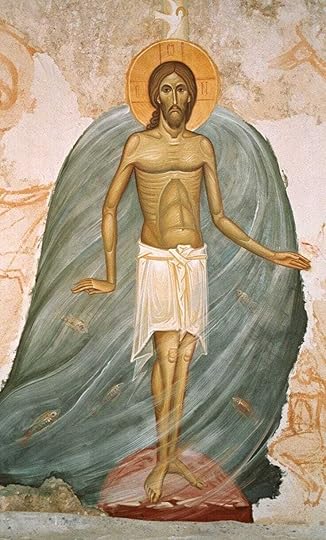
Thus to refuse new clothes is to reject a new identity…
Jesus tells a parable about a king who throws a wedding party for his son. But really, it’s a parable about a guy who refuses to change his clothes, refuses to accept a new self.
An evite goes out, but those in the VIP queue—the fat cats and country club set, the season ticket holders and the keto dieters, the cronies of the rich man—mark the invitation read and forget all about it.
So the rich man says, “Hey, I’ve already paid the photographer. I’ve got a Costco’s worth of beef tenderloin under the broiler, and the DJ’s already started playing the Electric Slide. Go out beyond the suburbs and bring in the folks from the Halfway House—and don’t forget those guys who loiter around the 7-Eleven too. Let them come into my party. The 1 percent don’t deserve my generosity.”
But then, Jesus says, among the good and bad gathered into the king’s party, this panhandling vagrant makes it past the maître d’ only to get himself shipped off to a place worse than Cleveland all because of the way he’s dressed.
“You there—yeah you.”
Actually, the word the king uses in Greek is hetaire, which means, basically, “Buster.”
“Hey buster, how’d you get in here dressed like that? We’ve got beluga on ice and Chateau Branaire-Ducru uncorked. This party is black tie and tails only.”
“Well, sir, I was sleeping outside next to the trash bins only an hour ago.”
And the “gracious” king responds, “Really? Well then...Bind him, hand and foot! Throw him into the outer darkness where there will be weeping and gnashing of teeth!”
To show up to the wedding feast of the king’s son without the proper garment, Jesus says, it’s more than a party foul.It’s a permanent sort of problem.“Bind him, hand and foot! Throw him into the outer darkness where there will be weeping and gnashing of teeth!”
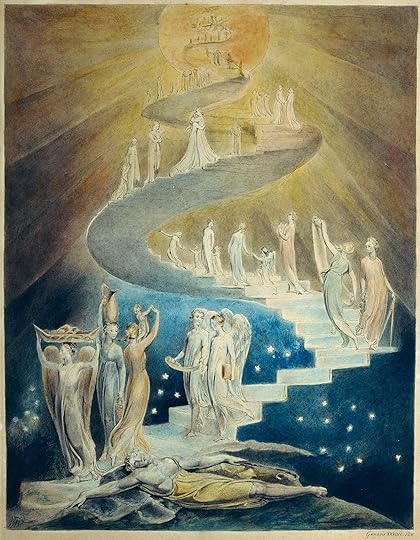
Jesus’s parable in the Gospels is an important parable to recall when it comes to the Book of Revelation because all the action and imagery of the Apocalypse to John is building to what the company of heaven calls the marriage supper of the lamb.
Only those wearing the proper garment get in, Jesus says.
Neil’s father, Mike, had insisted to me that they were neither spiritual nor religious. They did not believe, he shook his head at me in their foyer. They did not believe in God or Jesus or the Bible or any promise of eternity vowed therein.
Nevertheless, I found out on my way out of their home that Neil’s mother and father had gotten Neil baptized when he was just a baby. Almost as an afterthought, I was telling them where to meet me in the church on the day of the funeral. And Neil’s mother interrupted me, “We know the place. We’ve been there. We had Neil baptized there when he was three months old.”
Neil’s mother and father described his baptism as “going through the motions.”But Christians— we are bold enough to call it predestination.At Neil’s service of death and resurrection, therefore, I pointed back to that morning of his baptism and the promise conveyed to him in the water:
“Pour out your Holy Spirit, Lord, to bless this gift of water and he who receives it, to wash away his sin and clothe him in Christ’s righteousness; so that, dying and rising in the waters of baptism, he may share in Christ’s final victory.”
“Nothing Neil did can undo what God did that morning,” I said to the gathered grievers, “with water and the Spirit, God clothed him in Christ’s righteousness— Christ’s permanent perfect record. Whether any of us could see it on a regular basis or not, no matter what uniform Neil wore from one sport to the next, he was always wearing Jesus’s enoughness. From the day of his baptism forward, Neil lived this life just as he entered the next one, wearing an irremovable suit of forgiveness.”
Only a few people at the funeral knew that I was plagiarizing the apostle Paul when he writes to the churches in Galatia that everyone who is baptized into Christ Jesus our Lord has “put on Christ.”
Jesus as garment.
For Paul— and so, for the scriptures— a Christian is someone who’s changed clothes.“We believe,” the Nicene Creed goads us into accepting, “in one baptism for the forgiveness of sins.”
That is, baptism saves.
Baptism is a permanent wardrobe change. Baptism is the event whereby the carpenter’s son becomes a tailor, clothing us, once and for all, with a forgiveness woven for us by his death and resurrection.It’s no wonder, then, that the ancient church referred to the grace of baptism as habitual grace, from a nun’s habit because we wear it, all our lives long, as an irremovable vestment of forgiveness.
“Who are these robed in white?” one of the elders asks John the Revelator.
This vision of the saints wearing Jesus Christ— it comes as one of several interludes that interrupts the flow of the Apocalypse. This particular interlude comes in between the unsealing of the penultimate seal and the final, old-aeon-ending seal.
The difference between the sixth and seventh seals is the difference between the wrath the world is already enduring and the judgment not yet come.Between the present and the future, the already and the not yet, today and tomorrow, the Seer is given this vision of those who don’t have to fret about their table assignment at the marriage supper of the lamb.
As if to say…
The days ahead will prove difficult.
And, likely, they will prove you unfaithful.
Nevertheless!
You’re dressed for the eventual occasion.
You’ve been clothed in Christ.
You’ve been baptized.
Which is good news for any of us who ever worry about being graded according to our performance in life. That those who may enter the marriage supper of the lamb are those who have been given the necessary garments is a reminder that Christianity is more something done to you than something done by you.
For any Christian who’s ever realized that you don’t always look like a Christian, certainly don’t act like a Christian, don’t often think like a Christian, this is good news of great joy.
Christianity is more something done to you than something done by you.As obvious as bread and wine, this the good news in this text.
With water and the Spirit, you have put on Christ.
No matter your performance in life, even if you feel like you’re dressed a mess and just got pulled in, like a beggar off the street— the Bible tells me so— you’re ready to party.
So come to the table.
You’re already wearing him.
Unless you’re deaf, you already have him in these words.
So come receive him in wine and bread. And know, you are ready— no, you have been made ready— for whatever comes next.
August 4, 2023
A Quid without Any Quo

Tamed Cynic is a reader-supported publication. To receive new posts and all content, consider becoming a paid subscriber.
Everyone,
First, I want to thank all of you for supporting this platform and allowing me into your inbox and brain space on a regular basis. Your feedback and encouragement have been a blessing to me.
Second, I’m excited to share that my new book, A Quid without Any Quo: Gospel Freedom According to Galatians, is now available from Cascade Press.
Do me a solid and get a hard copy or Kindle version HERE . A few other ways you can help:Leave a brief endorsement on the book’s Amazon page— it helps very much.
Share it out on social media to your tribes.
Become a Founding Member of this Substack or Gift One to another, and I will send you a signed copy of the book gratis.
The Englewood Review of Books recently listed A Quid without Any Quo as one of the ten theology books to anticipate. It’s probably the only time I’ll every be listed alongside Richard Bauckham so seize the moment and get a copy.
Besides, Quid is dedicated to Fleming Rutledge. It will make her happy to know there are copies out there in the world.
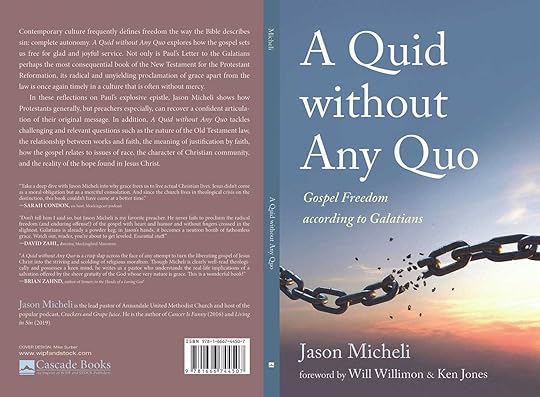
Ok, so this post isn’t all hustle and no gift, here is the foreword to the book by my plus-one, Dr. Ken Jones:
The twenty-century marriage between God’s word and the church has been a rocky one. It’s reminiscent of the God-arranged marriage between the Old Testament prophet Hosea and the prostitute Gomer. It was a marriage that produced children named Unloved and No-Relation. By the end of the prophet’s speech, though, God declares, “I will betroth you in faithfulness, and you will acknowledge the Lord.”
There are all kinds of things you might assume about this marriage from the outside, but Paul’s Letter to the Galatians gives us an insider’s look at what happens when a divine word both judges and loves sinners into freedom and new life. Galatians is sort of a day-in-the-life marital snapshot.
It’s a moment of vivid truth-telling when the gentile Galatians show themselves equal to the Israelites in faithlessness, even as they serve as predictors of our own stance in regard to God’s promise in Christ. An honest reader of Galatians is forced into a self-reckoning. Paul calls the gentile converts away from a slide into faithlessness that would result in a devastating breach with God. It’s judgment and he’s purple-faced angry. No doubt about that. But he never lets them forget the promise of Jesus’ own faithfulness that claimed them in the first place. He’s a damn fine couples counselor.
For us to experience the shock and relief that comes in an encounter with Galatians requires more than simply words on a page. Cleopas and his pal on the way to Emmaus had the text of the Old Testament well in hand, yet they still couldn’t grasp what the events of Passover in Jerusalem meant. They needed the well-disguised Jesus they met roadside to make sense of it. In other words, even mere hours after the women returned from the empty tomb, the faith of the Emmaus travelers required interpretation.
Jesus was the first preacher of the gospel. If the span of a few hours and days after Christ’s death and resurrection already showed the need for biblical commentary, how much more do we need help making a 2,000-year-old text come alive?
The Reformation catchphrase sola scriptura has often been seen as a demand for freedom from a magisterium established to tell us how to interpret the Bible. But that wasn’t the intent of Martin Luther and his fellow evangelical preachers and teachers. “Word alone” means the word is powerful enough to create faith. When God’s judgment and gracious promises are let loose, it becomes explosive on the order of Pentecost morning. With Galatians the problem is that the fog of those intervening centuries makes it extraordinarily difficult to hear this word with the auditory clarity of the letter’s initial recipients in central Turkey.
Jason Micheli makes quick work of this millennia-spanning task, because he is first and foremost a deft preacher whose weekly climbs into the pulpit have resulted in years of prime proclamation of the gospel. He regularly begins with those words on the page and then does an omnium gatherum, a pulling together of literary erudition, connections to popular culture, a deep awareness of his own and the rest of humanity’s brokenness, and an intimate knowledge of the broad arc of the biblical story. Sunday after Sunday he finds a way to weave it all together in a manner that makes the Holy Spirit a bit less in need of a postworship Sunday afternoon nap.
This brief commentary revels in letting us see its homiletical underwear. It’s born in the pulpit and shows us what Paul meant and means still. But it also serves as an antidote to the kind of preaching that offers up an arid litany of facts culled from commentaries. It’s a primer for how to preach. Micheli has bigger fish to fry than the usual biblical kommentariat: lengthier run-of-the-mill Galatians commentaries offer guppies of historical tidbits, but this one cooks up a swordfish filet that more closely resembles what happened between Jerusalem and Emmaus.
Micheli doesn’t just give an account of what happened way back when. He consistently seeks to provide the same quid without a quo that Paul did. In each chapter he pours a 200-proof gospel, straight-no-chaser.
Freedom with no strings attached. What happens in these pages holds the possibility of a person saying, “God, this is the strangest heartburn. Ever. I didn’t know I could be this free.” What Cleopas and his pal heard, what the uncircumcised believers in Galatia got from Paul, and what we have here provides us a promise bigger than millennia of commentaries, millions of faithless sinners, and masses of letters on a page. We have this one true thing: God has done the reckoning, and the accounts are cleared. We can quit the quid pro quo bargaining and enjoy a freedom in this marriage that’s lasting and free.
August 2, 2023
Q: Does God Change?

Tamed Cynic is a reader-supported publication. To receive new posts and all content, consider becoming a paid subscriber.
Earlier this spring, my friend Ken Tanner finally managed to prod me into revisiting (his idea) and rewriting (my idea) a catechism of the faith which I had begun several years ago.
Here’s the 15th and 16th Questions/Answers under the first rubric, God the Father.
Here is the previous post: Can We Find God in Nature?
And here are the two before it:
How Should We Speak about God?
You can find the others in the Archive.
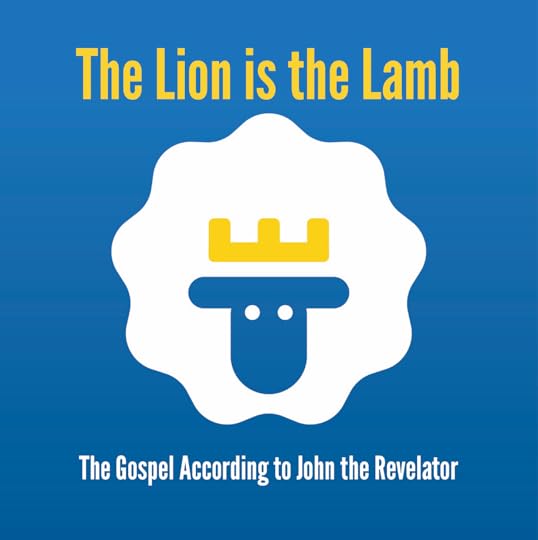
Before you go. Sign up for my online class on the Book of Revelation that starts this Monday night.
Register HERE.
August 1, 2023
To Pray is Human, To Repent Divine
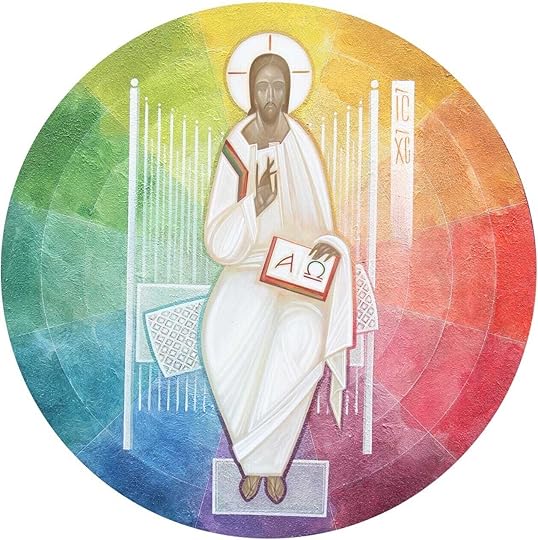
Tamed Cynic is a reader-supported publication. To receive new posts and all content, consider becoming a paid subscriber.
At the end of the sixth chapter of the Book of Revelation, at the precipice of the seventh and final seal, the Seer’s gaze shifts once again to the earth. After seeing the moon turn to blood red and the sun become as black as sackcloth and the sky itself rolled up like a scroll, John is given to see the dwellers of the earth summoning the creation itself to come to their aid and protect them.
Protect them from God:
“Then the kings of the earth and the magnates and the generals and the rich and the powerful, and everyone, slave and free, hid in the caves and among the rocks of the mountains, calling to the mountains and rocks, ‘Fall on us and hide us from the face of the one seated on the throne…”
It’s important to notice that this list of earth-dwellers, another series of seven, includes more than the rich and powerful. The list casts a wide, all-encompassing net, “Slave and free.” The Apocalypse acknowledges both the actual distinctions that persist in the world as we have made it, where the wealthy and powerful are at the head of the line, but also the universal condition of sin from which neither the poor nor the oppressed are immune.
This penultimate vision in Revelation 6 echoes the Book of Genesis where Adam and Eve, having succumbed to the tempter’s lure, “hid themselves from the presence of the Lord.” Humanity’s response to the approach of the Lamb is to beg the earth to hide them from their Maker. Just so, the desire to hide from God is a death wish, an act of self-annihilation, for to hide from God’s face, to cut ourselves off from his gracious presence, is nothing less than the rejection of life. Humanity’s terror before the Creator, humanity’s wish to be safely separated from this God is such that they would unmake the life he has made and given them. “Better to die, it would seem, than to fall into the hands of the living God.”1
The prophet Ezekiel reports a parallel vision.
Dreading the Lord’s appearance, the exiled people of Israel see that, because of their sins, they “waste away.” Since their past transgressions will remain always immovably in their past, the people wonder, “How can we have any hope?”
The Lord’s teaching, by way of Ezekiel, is that the impasse does not obtain and their future, despite their well-warranted fears, is promise not threat.
The Lord says, “As I live, I have no pleasure in the death of the wicked, but that the wicked turn from their ways and live; turn back, turn back from your evil ways; for why will you die, O house of Israel?”
The Lord continues:
“12And you, mortal, say to your people, The righteousness of the righteous shall not save them when they transgress; and as for the wickedness of the wicked, it shall not make them stumble when they turn from their wickedness; and the righteous shall not be able to live by their righteousness when they sin. 13Though I say to the righteous that they shall surely live, yet if they trust in their righteousness and commit iniquity, none of their righteous deeds shall be remembered; but in the iniquity that they have committed they shall die.14Again, though I say to the wicked, ‘You shall surely die’, yet if they turn from their sin and do what is lawful and right— 15if the wicked restore the pledge, give back what they have taken by robbery, and walk in the statutes of life, committing no iniquity—they shall surely live, they shall not die. 16None of the sins that they have committed shall be remembered against them; they have done what is lawful and right, they shall surely live.”
Ezekiel reiterates a chief theological message of Israel’s scriptures, one repeated to John in the unsealing of the penultimate seal.
The Lord takes no pleasure in the death of the wicked.
The Lord takes pleasure only in the wicked turning from their transgressions— turning as an act of trust in the one who promises, “I take no pleasure in the death of the wicked…”
Those who repent will not die for their past transgressions. Those who do not repent, will. In that a failure to repent before God amounts to a running away in fear from God, the source of their very life, those who do not repent will die.
Given this key biblical maxim, for God’s people not to repent— for God’s people to hide from God— is tantamount to insisting upon dying when there is no need.
Thus, Revelation 6 and Ezekiel 33 provide the most precise picture of sin, creatures fleeing the Creator and, in so doing, rejecting the very reason for the Creator creating them. In this, the apocalyptic prophets, Ezekiel and John, echo not simply the fall but Genesis’s account of the creation itself.
In the Book of Genesis, the Lord ontologically distinguishes one set of living creatures from all the others God creates. On the sixth day of creation, Genesis breaks the preceding rhythm of “And God said…And it was so.” After the land animals have been created along the usual pattern, a new locution is introduced, “Let us make…” As Robert Jenson puts it, “This out-of-rhythm act is the creation of humanity, male and female.”
The human creatures are given three distinctions over and against the other creatures:
They are made in the Creator’s image.
They are given dominion, in the Creator’s stead, over their companion creatures.
They are addressed by the Creator.
The Creator not only speaks humanity into existence, the Creator speaks to humanity and thus bids them to return his address. God’s address is what distinguishes us from all other animals. We are the animals who pray. Just so, we are uniquely God’s counterpart.
Indeed the Hebrew word rendered into English as “image” is best translated as “counterpart.”To be created in God’s image is to be made God’s counterpart in the triune discourse.
Humans are those creatures who exist in that they are mentioned in the triune conversation and are bidden to join it. As Peter Brunner writes, “In that God in the creation of man and women addresses them as ‘You,' God opens a history with humanity, that is constituted by the address of God and the answer of humanity.”
Quite simply—
Human creatures are made for colloquy with God.A failure to pray, therefore, is a failure to be fully human. It is a rejection of the very reason to which life has been given to us. It is no less a self-contradiction than the crucifixion of God.
Meanwhile, a refusal to repent, to shut down conversation altogether by running away to hide, is a rejection of the End to which we have been created, an End best captured by what John the Seer calls “the Marriage Supper of the Lamb.”
1Joseph Mangina
July 31, 2023
Sandwich Powers

Tamed Cynic is a reader-supported publication. To receive new posts and all content, consider becoming a paid subscriber.
The lectionary gospel for this coming Sunday is Matthew 14:13-21:
Now when Jesus heard this, he withdrew from there in a boat to a deserted place by himself. But when the crowds heard it, they followed him on foot from the towns. When he went ashore, he saw a great crowd; and he had compassion for them and cured their sick. When it was evening, the disciples came to him and said, "This is a deserted place, and the hour is now late; send the crowds away so that they may go into the villages and buy food for themselves." Jesus said to them, "They need not go away; you give them something to eat." They replied, "We have nothing here but five loaves and two fish." And he said, "Bring them here to me." Then he ordered the crowds to sit down on the grass. Taking the five loaves and the two fish, he looked up to heaven, and blessed and broke the loaves, and gave them to the disciples, and the disciples gave them to the crowds. And all ate and were filled; and they took up what was left over of the broken pieces, twelve baskets full. And those who ate were about five thousand men, besides women and children.
It’s the only miracle in all four Gospels, the feeding of the multitude. The numbers vary a bit: the feeding of the multitude, the feeding of the five thousand. Matthew and Mark include a second account of four thousand fed. Add in the women and children who would not have been counted according to first century prejudice and, well, it was a lot of people.
It took considerable sandwich powers.
All four Gospels describe this scene up on the mountain with Jesus, the disciples and a crowd Jesus just can’t shake.
In all four Gospels the menu is the same.
Bread and fish.
Five and two.
And all four gospels have this action that sounds like communion: Jesus took the loaves. Blessed them. Gave it to them.Saying, “Take and eat.”Each Gospel portrays the crowds as all full and satisfied.
And every gospel includes the leftovers: 12 baskets.
5 loaves + 2 fish + 5,000 plus hungry people =
12 baskets leftover.
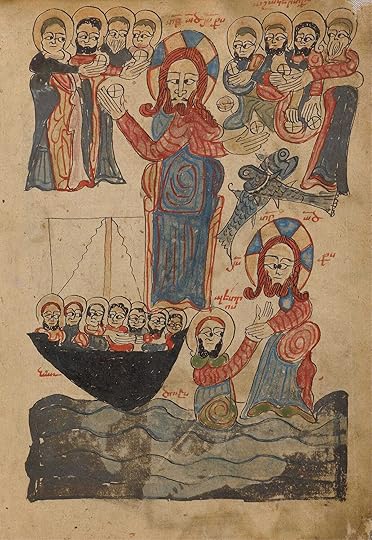
Jason Micheli's Blog
- Jason Micheli's profile
- 13 followers



